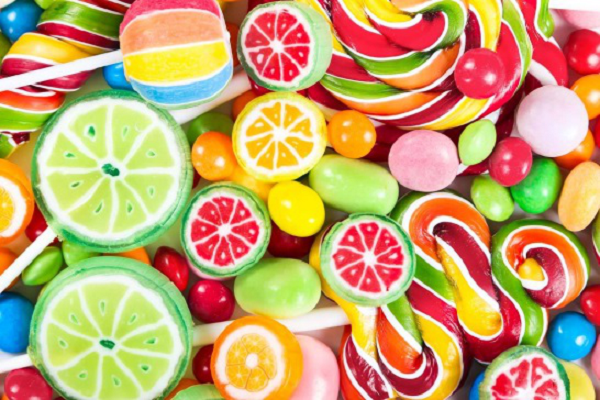Before the winter chemical weeding, some experts call it weed autumn governance, its benefits are the following: a small amount of medication, low cost, when weeding before the winter, small weeds use a small amount of drugs, simple and labor-saving control, and thus the cost is low The coverage of weeds by wheat seedlings is small, the wheat seedlings are not ridged before winter, the field canopy density is small, the weeds are exposed, and the drug surface is large; the control effect is good, the weeds are young before winter and the drug resistance is poor, and can be improved; The control effect is high; the safety of the rear crops is high, the herbicides are used before winter, and the decomposition time of the liquids is long, so the safety of the crops after the crops is high; the spraying efficiency is high, and the chemical weeding before winter can solve the difficulties in walking during spring weeding. Problems such as low spraying efficiency and difficult quality assurance. Therefore, we must vigorously carry out pre-winter chemical weeding to lay the foundation for seizing the next harvest. Specific operation method: During the best weeding period, 2 to 5 leaf stages of wheat, 2 to 5 leaf stages of weeds, and all types of weeds in wheat fields are basically seedlings. The wheat fields planted on a regular basis from around October 5th to 15th, except for the treatment of weeds, will last about mid-November. On the day of weeding, time is from 10 a.m. to 3 p.m. Pay attention to the low temperature and temperature at the time of spraying. Herbicides have low efficacy and are prone to phytotoxicity. Temperatures above 30 °C (usually not present before winter) when spraying, prone to phytotoxicity. Therefore, weeding before winter to watch the weather forecast in advance, select sunny, no frost and heavy rain within 4 days and no muddy water in the field, when the temperature is higher than 8 °C, below 30 °C. Before strictly controlling the amount of herbicides used, the farmers' friends must read the instructions carefully and strive to obtain the correct guidance from the technicians. Herbicide dosage is very strict, must not increase the dosage. Herbicides can be used to control grass weeds. 70% 彪 Tiger (Xefloxulfuron, which is not ideal for control of Jijiemai), 6.9% Hummer (fenoxazol oxime) or 3% Shima (methyl) Desulfuron). Anti-year-old broad-leaved weeds can be used such as tribenuron. Grasp the spray technique should be as far as possible to make the wetting stems and leaves of liquid weeds, but the liquid does not inflow, and do not heavy spray, no leakage spray, mu water consumption of not less than 25 kg.
The human tongue has a range of specific taste sensation neural receptors called taste receptors which are organized mainly as papillae on the tongue. When stimulated by chemicals, natural or synthetic, organic or inorganic, cations or anions, the receptors send signals to the brain which interprets the stimulations as sweet, bitter, sour, salty, and savory (unami, meaty taste). For examples, cations such as Na+ present in the table salt evoke the salty taste, and H+ presents in acids evokes a sour taste. Organic compounds such as sugars, dextrins and glycerol result in sweet taste, glutamate results in savory taste, while many toxic compounds such as nicotine, morphine, caffeine, quinine, etc. result in bitter taste. The sensation of tastes is an evolution trait for defense against poisons (normally evoke bitter taste), and for allowance of nutrients intake (normally evoke sweet or savory taste).
Sugar is a natural sweetener as well as a nutrient consumed in vast quantity around the world. It is one of the major calorie intakes by humans. Over consumption of sugar often leads to obesity and other related medical conditions. High blood sugar level (hyperglycemia) is a manifestation of the disease diabetic mellitus; if not managed properly, it could lead to a range of medical complications. To combat these medical conditions, high potency Sweeteners with no calorie or low calorie intake are often being used to substitute sugar. Proper control of calorie intake, coupled with the use of these sugar substitutes has been very effective in managing the medical conditions.
Besides the medical indications, using sugar substitutes brings the economic benefit of lowering the cost of many foods and consumer products, from soft drinks to cakes, pasties, and even toothpastes.
A variety of chemical compounds, natural or synthetic, can evoke sweet taste, but not all of them are safe (for example lead acetate has a sweet taste but it is extremely toxic), nor are sweet taste specific (for examples, many of synthetic sweeteners can also evoke other senses of taste such as bitterness or metallic sensation). Therefore, selection of the right sweetener for a specific use depends not only on the cost, but also more importantly on the health and safety, the sweetening potency, the effectiveness under various physical conditions such as cooking temperature (heat stability) and pH, as well as other unwanted tense of tastes of the sweetener.
At Sunshine Biotech, we have the expertise and technical know-hows to help you make the right selection for the right use.
Sweeteners Artificial Sweetener,Stevia Liquid,Aspartame Powder,Neotame Powder Nanjing Sunshine Biotech Co., Ltd , https://www.sunshine-bio.com


Most farmers are accustomed to using chemical herbicides in spring to treat weeds in wheat fields. Actually, it is better to perform chemical weeding before winter than in winter, and the operation is simpler and easier.